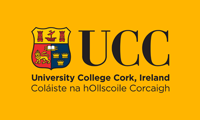Defined or Restrictive Diets for IBD
Inflammatory Bowel Disease (IBD) is a complex condition that affects individuals differently, making dietary choices a crucial aspect of disease management. In this edition of IBD Insights: Living with the Disease, our Patient and Public Involvement (PPI) panel shares their experiences with restrictive diets and how they navigate food choices during disease flares and remission.
| Patient-to-Patient Tips on Dietary Restrictions | |
|---|---|
|
|
|
|
|
|
|
|
| The Science Behind | ||
|---|---|---|
| Defined Diets for IBD | Guidelines on Dietary Interventions | Reintroducing Foods after a Flare |
| While dietary needs vary among individuals with IBD, several factors influence what foods may be tolerated: |
|
|
|
|
|
|
|
|
|
|
|
|
|
|
Expert Panel Contributions
This resource was developed in collaboration with experts in the fields of microbiome research, immunology, and clinical nutrition:
- Silvia Melgar – Investigator at APC Microbiome Ireland, expertise in immunology, inflammation, and host-diet interactions.
- Majella O'Keeffe – Registered Dietitian, researcher, and senior lecturer specializing in nutrition and dietary management of IBD.
- Ana Velikonja – Research scientist at Arla Foods Ingredients, formerly a postdoctoral researcher in gut microbiome and IBD.


